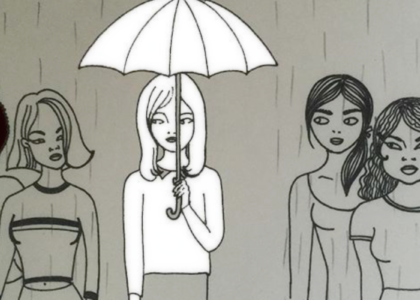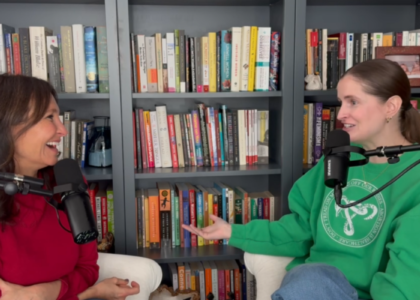“rethink what you can achieve”
Amy is joined by Jane Boulware to discuss her book, Worthy, plus her meteoric rise from being a used rug vendor to senior leadership at Microsoft, and how we can all learn to overcome our “un”s and pursue our ambitions.
Our Guest
Jane Boulware
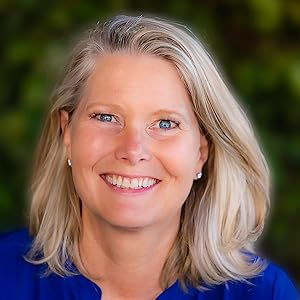
Jane Boulware is a global business leader and former Microsoft Executive. Married to her high school sweetheart, Jane lives in Washington state and works to make a difference, serving on boards including Boys & Girls Clubs, writing, speaking, and consulting. Jane is passionate about helping people claim their worth and forge the future. Her joy is being outdoors with her family.
The Discussion
Amy Allebest: In all the episodes of Breaking Down Patriarchy we’ve talked about women in politics, women in education, women in activism, in the arts, in the sciences, and so many other fields. But we’ve spoken relatively little about women in business, and this is a really important topic that shouldn’t be neglected. For better or worse, the business sector influences every other sector of society. And when the majority of businesses are run by men, and they are, only 10 percent of the Fortune 500 currently have female CEOs, then women’s perspectives are underrepresented and our culture struggles to move beyond the patriarchal norms that were handed down to us from previous generations. For this reason, I was fascinated to read the book Worthy: From Cornfields to Corner Office of Microsoft by Jane Boulware. I absolutely loved the book and I’m thrilled to welcome Jane to the podcast today. Welcome, Jane!
Jane Boulware: Amy, I’m so happy to be here! What a great, amazing topic. I can’t wait for our conversation.
AA: I’m really, really excited about it and I so enjoyed your book. We’ll start out, as we usually do, by me introducing you professionally and then I’ll ask you to introduce yourself more personally with details about where you’re from and how the different factors in your life brought you to do the work that you do. But first of all, the official bio:
From the cornfields of Iowa, Jane Boulware defied expectations to lead billion-dollar businesses and rise as a top Microsoft executive. By 52 she had launched three major ventures, navigated the U.S.’s largest merger, and left a trail of influential leaders behind her. Passionate about empowering others to recognize their worth, Jane is a positive catalyst of change, and a dynamic speaker, mentor, and board member. Jane cherishes time outdoors with her family. And, importantly, it’s great that this is right up front in the episode, Jane. All proceeds from her book, Worthy, are committed to the Boys & Girls Clubs of America’s Youth of the Year scholarships. That’s so awesome, and I’ll ask you more about that in a minute, Jane. She lives in Bellevue, Washington, and I believe also in the desert, as we were just talking about. Is that right, Jane?
JB: It is. At least for a few months of the year I actually enjoy the rain of Seattle, so we split our time. Rain for myself, sun for my husband.
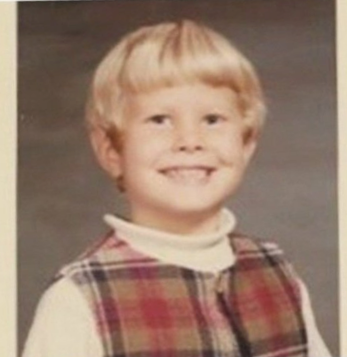
AA: Love it. That’s great. Yeah, both gorgeous places. So, let’s start from the beginning. I would love it if you could tell us about your upbringing in Iowa and how that shaped your worldview.
JB: I was born the fourth of five kids in a one-bedroom house, a very modest household. We didn’t have a lot, but what we didn’t have we either borrowed, made, or, you know, figured out. And there just weren’t many expectations for us kids, not just because I was a woman, but in general we were a very blue collar family. We worked hard together to make things come together. And the expectations for me were really to stay on the good side of the Church and the law, in that order. So the expectation was basically not much. I would, of course, do well in school or go to school, and then probably stay local, have kids, et cetera, as the women before me had always done. And instead, I always was one, my mom said, “Jane, you always were a tough clay to mold. You never listened.” And I decided early in my life that I wanted more. I looked at the situation that I was in and it wasn’t bad, it just wasn’t for me.
And so I did do the unconventional thing in our family, which was going to college. I got a scholarship to go to college because of a gnarly old nun. Had that not happened, had I not met that gnarly old nun, I may not have gone to college. I may not have been sitting here before you now. And I certainly wouldn’t have written a book that I would be able to give the proceeds to Boys & Girls Club kids, just like someone did for me, so that they can go to college and open a world to a life they may not know exists.
AA: That’s really beautiful. Since you started talking about it, let’s talk about Boys & Girls Club. Can you talk about why you chose this particular charity to donate to?
JB: It’s an organization that provides a safe place for all kids, regardless of their circumstances, although many of the children that go there don’t have an alternate safe place to go after school. They provide a positive adult, they provide an opportunity to help with school and learning after school care. They provide after school meals and snacks and athletic activities. And most importantly, they provide a positive place where the kids can think about a future beyond where they are today. And in my case, honestly, that was the biggest thing people would say, “Did you always dream of this?” And the answer was, “I didn’t know to dream of a world I didn’t know existed.” And so I’m very keen on the Boys & Girls Club because it is the largest youth services organization in the world and it genuinely makes a difference on the ground. I’m at a local organization and when we do fundraising, all of those funds go to helping our kids directly. So I feel really good knowing that, honestly, I think it’s an organization that changes lives for today and into the future.
AA: That’s really great to know about. I’ve heard of it, definitely, but I’ve never been involved in it. I was thinking about it from reading it, I think it’s right on the book jacket, when I was reading the book and thought I need to look more into that. Because I feel like the way that I like to direct my resources, my time and energy and donations, for me personally, there are so many worthy, wonderful causes, but early on in people’s lives, interventions that result in having more choices and being able to choose a path that enables self-actualization, the earlier the better. Do you know what I mean?
JB: I totally do. And there are two things about that. One is that not all the kids that go there are kids that need us most. It’s all kids, because all kids need that. But in the process of coming together, kids that have means and wealth, kids that don’t, they come together on a common ground and they realize that there’s no difference between them. And they get to see an experience circumstances they might not have otherwise seen and experienced. That’s one thing. The second thing is that I am so passionate about, you know, if we’re going to change the world, we fundamentally have to get new, different voices and experiences in places of decision making. In order to do that, we have to give kids and people today that are striving and struggling that opportunity to rise up. And what better place to start than when someone’s in middle school or high school? To raise their line of sight and their gaze so that they see themselves as someone worthy, as being a person that can influence decisions, that can change the status quo, that can be a person of influence and change. And so I really, if you can’t tell him a passion about it, I believe in it pretty strongly.
I didn’t know to dream of a world I didn’t know existed.
AA: Yeah, that’s so great. Well, that led me perfectly to the next question I was going to ask you. You talked about feeling internally that they’re worthy, right? To be able to envision “What path do I want? What, what are my goals?” And then feeling worthy of being able to achieve those goals. So that leads us to the title, Worthy: From Cornfields to Corner Office of Microsoft. And the whole book does really vividly depict your journey from rural Iowa to becoming a top– There it is! I love it. I’m glad you’re showing it actually, for those who are watching this, some are listening. But the book title was the next question. It says “Unworthy” and then has the “un” crossed out. So the title is Worthy, but you have in your mind that there was something about being unworthy that’s getting crossed out, and that actually really resonated with me. Can you tell us about all those aspects of the title?
JB: Man, I can. Notice that the book’s not called “Jane Boulware, look what she did” or “Be like Jane Boulware, here are the five steps to get to the corner office of Microsoft.” If you’re looking for a program or how-to book, this is not that. This was called Unworthy, but the “un” crossed off because the book is as much about the “un”s as it is about the worthy. I genuinely believe that we have to undo our “un”s because we can be empowered, encouraged, enabled in our career and in our lives. But if we don’t feel worthy, if we feel unable, uncourageous, unpowerful, then no one can do that. But ourselves, the only way to become able, powerful and courageous is by undoing our own “un”s.
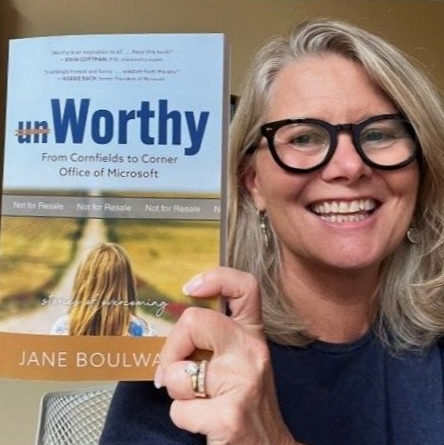
So I crossed off the “un” because the book is very much about overcoming my “un”s and the journey that I went through. Because on the outside, people would look at me and say, “Well, I can’t be like you. If only I were like you.” Or they would come and want to be coached or mentored and say, “What’s your secret sauce? How do you have this so figured out?” They feel like they’re a hot mess, but I will tell you, everybody’s a hot mess sometimes. So I called it Unworthy and wrote stories that were real and relatable so that people would see the inside of my journey, not just the outside of my journey. It was like turning myself inside out. I did not find a lot of books out there, by women particularly, that talked about the tradeoffs, the challenges, the fear – I call it FUD: fear, uncertainty, and despair – that talked honestly and openly about their FUD on their journey. And whether the journey is to the corner office or the journey is to the grocery store, we all have FUD. And I wanted to share that so people wouldn’t feel alone and hopefully be inspired to rethink what they could achieve.
AA: Yeah. Well, that certainly came through. Now I’d actually love it if you don’t mind sharing a particular instance where you undid an “un”, or you challenged that fear, uncertainty, or despair.
JB: Certainly. I was running a business that was not doing well. It was after the Scott and Paper merger, and I was the vice president of Scott and I was accountable for turning the business around. And most of the time I was in meeting with all men, I was often the only woman. And I would often sit in those meetings and think, “Oh my gosh, I don’t belong here. If they knew how scared I was, if they knew that I did not have a clue what I was doing… Maybe they do know! They probably are judging me, they do know I’m not worthy.” And I would get in this cycle and I would just go round and round. And I would leave these meetings then, I was leading a team, and I would try to be someone to the team that would be strong and have the answers and know what I was doing because I didn’t want them to see and reflect how scared I was on the inside.
And it was only in being brought to my knees, at the time I had bulimia, but even so it was really seeking an unhealthy way to deal with my uncertainty. It was only when I accepted the fact that it was okay not to know, and it was okay to admit that I needed help, and that I was afraid. And in the process of doing that, I started to invite my team to these meetings. Because in many situations I didn’t have all the answers that they knew, and I started bringing other people that were the experts in those areas to the team. And I started leading instead of feeling like I had to have all the answers, and inviting help from those around me. And that’s when, from a leadership perspective, from a business perspective, from a personal perspective, things began to change for me. Because I didn’t see other people as a threat that I didn’t want to get found out about. I welcomed that in. And the more I did that, I thought people were going to reject me and say, “I knew all along she wasn’t that good.” And instead the opposite happened. It was like, “Oh yeah, she’s got her act together because she’s got a really strong team and I feel confident that they know what’s going on.” So, that’s an example.
AA: Yeah. I so appreciate your willingness to share those stories. And I think that’s why it can really resonate and really help. Because, like you said, sometimes you’ll read a “self-help” book or some inspiring story, and if you can’t relate and you just think, “Well, that person never felt that feeling of unworthiness, they’re in a different category of humans. How can I learn from it?” And so for you to bear everything and admit that you didn’t know what you were doing is so, so helpful.
JB: Probably one of the best compliments that I get from people that read the book is that they snorted and laughed in one minute, and they projectile cried in the next. Which is a really nice compliment cause that says that they can relate to it and it was real. And you know, I think a lot of people deal with FUD. Fear, uncertainty, and despair, or whatever you want to call it, it brings me out to the point. I finally have learned that I’m not afraid to be afraid anymore. That’s really an important thing, because we think of fear as something to be avoided and as something to be ashamed of and as something to not let other people see, almost as a weakness. I’m afraid therefore I don’t have it figured out. I don’t want people to see that, because I’m a fraud. I’ve reframed that. For me, being afraid means that I am stretching, I am growing, I am pursuing something that’s outside my comfort zone. I am over my skis and I might fail. I might fail in this endeavor, but there’s a big difference between failing at something and being a failure. So, I’m kind of proud of being afraid. I’m kind of proud when I say to someone, “I don’t know what I’m doing. It’s scary, I’m afraid, but I’m trying. Bear with me.” So I have taken a different approach to failure and to fear.
AA: I love that. I do think that that kind of unwillingness to admit any vulnerability or something that you don’t know, that unwillingness has historically been kind of a patriarchal norm, right?
JB: Very much so.
AA: Right? It’s considered a kind of a masculine trait to be so strong that you’re impervious to weakness or criticism or whatever, and you can never admit, which is a terrible little box for a man to be in.
JB: Oh, my gosh. Can you imagine?
AA: It’s terrible.
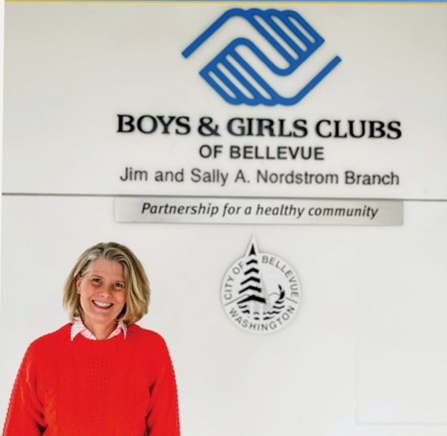
JB: Yeah, it is terrible. And I will also tell you that acknowledging that you are uncertain, there are three words that the ego cannot speak: “I don’t know.” Actually six, because “I am wrong” is another thing that is very ego driven. And I’ve found it to be very disarming when I’m in a group of men, or people. I’m the chairman of the board right now for the Boys & Girls Club, and we have people on our board that are billionaires and people that are beginners. Everywhere on the spectrum. But when they walk through the door, all I ask from them is that they leave their checkbooks, their titles, everything at the door, because I don’t care. They need to bring their hearts, their minds, or I say their head, hands, and heart into the door, because that way people get to be real. And that way, if you don’t know, or you are afraid, or you need help, it’s a lot easier to talk about.
AA: I love it. I love that. I feel the culture changing in that direction, and I’m so, so grateful that it is. I want to back up in your personal story and have you tell a little bit more about your youth. There is a whole episode of your life where you were paying for college by selling used carpets, and you say you got through on that used carpet business and your mom’s prayers. Can you talk about both of those things?
JB: I had a number of jobs. I would clean houses to help pay for the rent, and I worked in concession stands. Which I say contributed more to my bottom than to my bottom line, because I ate a lot of hot dogs and popcorn that year. But ultimately what helped me pay for tuition was selling used carpeting. My dad actually laid carpeting for a living, and he would lay carpeting for the day and then he would bring the scraps home and keep them in the garage and he would pile them up. And when the pile got big enough, he would take them to the city dump. And my roommates and I were sitting with our feet up on the bed because the floors were tile and they were so cold in Iowa that we just couldn’t stand it. And the girls said, “Man, why do we not have rugs? I would pay so much if this was carpeted. This is crazy.” And I thought of my dad’s garage. So I took my crappy old car and drove the 65 miles to my dad’s house and asked if he would help me and teach me how to seam together the scraps to make big enough carpets that I could take back to school.
Now, what was unique about that is it was a clever way to solve a problem, but the biggest challenge in that for me was asking my dad for help. Because in the family that I grew up in, you could do something without asking, you could help someone, you could do all of those things on your own or someone could help you. You just didn’t ask for help. Asking for help just was not done. And that perspective really influenced my life for quite a while, which is why learning to ask for help and overcoming and believing that that’s a strength instead of a weakness was really hard for me to do. Then, at the end of the day, he smiled and it was a great opportunity for the two of us to work together. I rolled up those carpets, put them on my car, I can only imagine what it must have looked like to see my crappy old car with literally twine holding the rugs going down the highway. Probably lost a few of them along the way, I don’t know. And I would pull up at college in the parking lot and sell them and made a ton of money.
AA: Yeah, I remember you made a ton of money doing it! I mean, to the point that it seems like you almost couldn’t keep up with demand.
JB: I learned so much from a business perspective at that time. Because if there was a line, I just kept charging more for the carpeting. And I learned because some scraps were made out of shag, some were pilot, and some were pile, different types, and I kind of learned how to position the different rug types for guys versus girls and the softness versus the durability and the cleaning ability. I really honed my marketing and sales ability at that time. In my book I say that used carpet salesperson was probably one of my most preferred titles out of all the titles I have had. It felt like it was a business in the making for a person in the making, because I was just trying to figure it out. And those scraps that would have been thrown away were put together in such a way that they made something useful out of that. And I think that so often, Amy, we look at the scraps and pieces of our lives and we think they’re worthless. But when we put them together, especially with someone else’s help, in a different way, it becomes incredibly valuable. You just have to look at it and twist and turn it maybe a different way or rethink it. And I just love that story because it taught me so much about using scraps and making something valuable out of it. How to position it, and how sometimes the solutions in our lives are unconventional. And other people would have said, “You’re crazy, Jane.” But that crazy got me through college.
AA: Yes. I love it. And I love that part of the book. Okay, tell us about your mom.
JB: Ah, Madonna Bernadette.
AA: It’s a fabulous name. You couldn’t make that up, like it’s in a novel, right?
other people would have said, “You’re crazy, Jane.” But that crazy got me through college.
JB: Doesn’t it sound like a saint’s name? She was no saint, but it sounds like a saint’s name. And I will tell you, before I tell you about Madonna Bernadette, I shared with her before she passed, I read the book with her before she passed and I wanted to make sure she was okay with what I wrote about her, and she was. And I asked her to give me a sign when she passed, and she’s like, “Jane, it doesn’t work that way. Once you go to heaven, that’s it.” And I always kind of chuckled and I thought, “Well, Mom, if you think about it, give me a sign.” And so there have been many times that I feel like she’s given me a sign since she passed away a couple of years ago. But when I wrote the book, I said my goal was to get a hundred testimonials or ratings on Amazon within a hundred days. Because I don’t have a name that everybody knows, I don’t have a large budget, and I’m donating everything to the Boys & Girls Club, so I’m trying to keep my costs reasonable. Guess what day I got a hundred ratings?
AA: What?
JB: On her birthday.
AA: No way!
JB: Way. Madonna Bernadette was someone who I think struggled her entire life. She was 25 years old and had five kids, or was pregnant with her fifth. And she really did her best, but really called upon her faith to help get her through. And that was very important to her and worked a lot. And she got up sometimes at four or five in the morning to be able to say her prayers in time to wake up and get the kids going and so on. Because five kids within six years takes a little time. When I went to college, I would talk to Mom nearly every day just to check in on her, because I kind of had her under my wing and I knew she was getting up and praying for people. And so I would say, “Mom, I’ve got an exam coming up. Will you pray for me?” She’s like, “Of course, Jenny, I’ll pray for you.” “Mom, Katie’s got an exam too. Will you pray for Katie?” “Of course.” “Mary, Katie, and Kim have exams. Will you pray for them?” “Of course I will.” And I could tell she was writing all this stuff down.
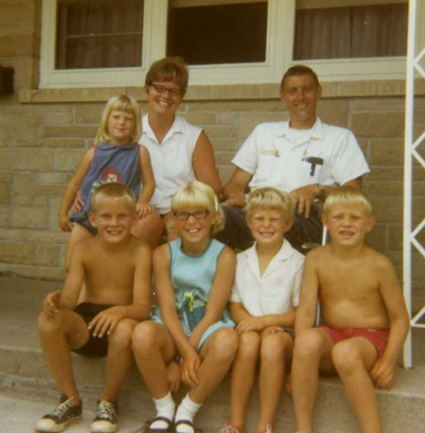
Well, the word started to spread. And people would come to me and ask for Madonna Bernadette’s prayers, and I soon didn’t know the people. I was broke, Mom was going to pray anyway, so I started saying, “Well, Mom will pray for you for $10, or you can light a candle for $20 on the stove and she’ll light a candle for you.” And I was careful to write down all their names because I didn’t want to be responsible for flunking someone. And I called my mom dutifully and said, “Mom, here are some people who have some exams going on. Will you please pray for them?” And “Yep, yep, I can do that. Boy, you know a lot of people, Jane. You sure know a lot of people.” And I’d say, “Yeah, Mom, maybe you could write these down.” And sure enough, she would pray for them. And at the end of the day, you can’t guarantee that that helped, but so many people came back and were repeat customers that at the very least it enabled them to be relaxed enough in their exams. But I would argue that the Holy Spirit helped them as well.
AA: That is so funny.
JB: Or at least Madonna Bernadette.
AA: I must admit, this didn’t come to me when I was reading the book, because I of course remember this happening. But as you’re talking I did, I’m sorry, but I did have one little visual of you as a medieval monk collecting indulgences. I know you weren’t promising forgiveness…
JB: Oh my gosh! I was raised very Catholic, I’m like, “Is this a direct route to hell? I’m not really sure that this is okay, but I got no money and I really need to be able to eat.” So yeah, it was a little unconventional. But I didn’t tell my mom for years, and when I did she was beside herself. And she ultimately thought it was pretty funny, she said, “Well, you know, I did pray for them.”
AA: She did, and it worked!
JB: Madonna Bernadette, you cannot make that up.
AA: I love it. I love that part. It’s so awesome. Next question is, you talk about how you’ve been called lots of things in your life. You’ve been called a bulldog, a bitch, an idiot, and also brilliant. I mean, obviously you’re super successful. How did you learn to navigate both the criticism and the praise?
JB: It switched as time went on. Early in my career, it was easier for me to hear what I wasn’t than what I was, because I was thinking and listening through the voice of fear and anxiety. John Gottman is a famous scientist and researcher and his research says that there is a kind of magic ratio of at least five to one. In order for someone to take away a positive versus a negative you have to have at least five positives to every negative. So if you go in and you tell someone, “Hey, you did this great, but you kind of mucked this up.” They will forget completely about the, “Hey, you did this great” and they will only remember the thing that says you mucked this up. So there was that. I don’t think I ever very often heard five to one ratio. So my net takeaway was often the negative. And I would live in that space and I would churn in terms of what I needed to do better, which was both motivating but also debilitating.
As I matured and advanced in my career, and what I would hope your listeners will do and think about is that five to one. But also recognize that the feedback that you’re receiving, especially if it’s personal, is coming from where that person is and may or may not have anything to do with where you are. It may not. And there’s a big difference between saying, again, “what I did I need to improve on” versus “I am a failure” or “I am unworthy”. Because you are worthy. You don’t have to earn it. You are just plain worthy, and you are learning and growing and you can make improvements, but you are doing your best and that’s okay for today. The other thing I will say is that it used to really bother me when I was called names, labels, bitch, it really bothered me. Wow. Doesn’t bother me at all anymore. It just doesn’t. You can put a crown on my head with a label, positive or negative or otherwise, but only I choose whether to wear it. Only I choose whether to wear a crown or a thorn that says “bitch” or “queen” or anything else. I get to choose my own crowns, my own labels for myself. And again, someone calling me a name is not about me. It’s about them. And to be clear, I can act a little bitchy sometimes. Big difference between that and being a label.
AA: Mm-hmm.
JB: Right?
AA: Yeah. Oh, for sure. That’s so hard to do. It’s so helpful. It’s totally helpful. Because I think it’s a retraining of the mind to remind ourselves of that constantly. I like that visual, too, that they can make the hat for me with a label on it, but I choose whether to put it on my head. And it doesn’t fit me anymore.
JB: That label did not fit me. Maybe it never did, but it’s uncomfortable. It’s hot. It doesn’t fit me anymore. And I don’t want to wear it. It’s heavy and it’s icky and I don’t like it. And I don’t want to wear your label on my head. Forget it. Your hat doesn’t fit me. And it’s hard to learn at the same time, again, so empowering to be in a room or to respond to someone from a place of strength and to be able to say, “I appreciate how you feel. I don’t feel that way. That’s not who I am.” And walk away or just not own it. Talk about a way to take the air out of their bag, their nonsense.
AA: Yeah, that’s true. And I think that’s one thing, hopefully, if we work at it, I don’t think it’s automatic that we get more able to do that as we age. I think we can get more able to do that as we age but it doesn’t happen on its own just by virtue of getting older. But it is getting easier for me as I get older because I’m working at it more and kind of retraining myself.
JB: I think we wound ourselves a lot.
AA: Yeah.
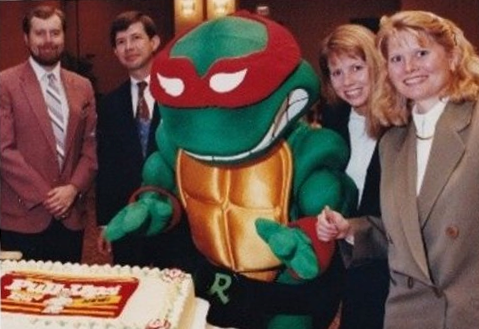
JB: We do. And we rewound ourselves with names and labels. We really do. It’s hard, but it does come from a feeling of self worth knowing and claiming your worth and saying, “I’m doing my best for today. This is what I got.” No one should be able to have the right to take that away. No one should be able to take or imply your worth is less or more than anyone else’s because of title, or money, or heritage, or skin color, gender or anything else. That is not okay and I’m not going to let that happen to myself.
AA: This is kind of a connected question, how do you define success? Or, what crown do you want to put on your own head? What does success look like to you and how has that evolved over the years?
JB: If you think about it professionally, because the two professional and personal kind of merged and munged together. My husband says that professionally, the biggest failure I’ve had is retiring. He said, “You are failing at retiring. You have failed at retirement.” Because I don’t like the word. I hate it, actually. Because what’s happened is that I have redefined what success means to me. It used to be, gosh, I got this promotion or I did this. And success to me now isn’t about achieving a title, it’s about helping other people raise up. The very first and the very last stories in my book talk about a pickle bucket. When I was a child, we didn’t have a lot of money, but we each had a five gallon pickle bucket that came from Matt’s Cafe. Mine said Jane on it, and I used to scribble colored pictures on it and tape it on and so on, because it was my repository of all the things that I put that I thought were valuable. My ribbons and my certificates and whatever that might be. It was what told me I was worthy. I matter. And then later my dad threw the bucket away, that’s a story, which was a bummer.
But then I spent a lot of years trying to fill my pickle bucket with things, with degrees and with money and with all kinds of things, as we all do. And it’s only been later in my life now that I defined success as what we take out of the pickle bucket. Because I’ve come to appreciate that we’re all born with a pickle bucket and our bucket is full. It just is full. You don’t have to put anything in it. You’re born with a full pickle bucket and it’s what you take out and give to someone else that I define success by now. And it doesn’t matter the amount of money you have or any of those things. We all have a gift to give. And it’s in the giving that I really find my definition of success, which is why I’m failing at retirement. I’ve told my husband, there was a quote I read that said, “May your purpose and your passion be your life’s work.” And by that definition, I will never retire because that means I’m not purposeful or passionate about the things that I’m doing anymore. I love this, if you can’t tell. I do. I love it.
AA: You sound like, from your book and from this conversation, you’re just like my husband. It is going to be really hard for you to sit and not do something, right? I mean, you’re really using your life, your one wild and precious life, to do good in the world, and I just love it.
JB: I mean, I still love to go hiking and I just adore my kids. They’re coming in later tonight and it’s an exciting weekend. I love that. But I am able, and as long as I’m able I will do. And I love that too.
AA: I love that. The next question I wanted to ask you about, actually I was going to ask with a story from me, if that’s okay.
JB: Please do.
AA: You mentioned mentorship and giving out of the pickle bucket and how meaningful and how important that is. And because of the work I do with Breaking Down Patriarchy, I’m thinking a lot about women and how to help women reach their potential and live their best lives. And so I want to ask you about mentorship, specifically about mentoring other women. So I’ll mention this quick story that when I graduated from college I was married and pregnant with my first child. And I was just thrilled that I was graduating from college because that was a step further than a lot of the women in my life had gotten. And so I was rightfully just so grateful and proud and was like, well, the next step is being a mom. And that meant not working. I had never pictured grad school for myself. And then four kids and many years later, I realized that although I loved taking care of my kids, they were all in school by that point. And I thought, “Well, shoot, what happens to the rest of my individual potential?” And I wanted to go back to school. And I felt so unworthy and unqualified. And I was unqualified. I had taken so much time out of the public sphere, public life or academia or anything.
And as I was walking into class, I think it was the second or third week, and actually now that I think about it I wasn’t in my master’s program yet. I started by taking night classes at Stanford that were just continuing ed classes so that I could kind of get my feet back in. And at that point I thought there was no way I could do a master’s degree, let alone at Stanford. And I had this class with this professor, and I felt so intimidated even being there. He was this older man and he taught at Stanford and Berkeley, and he was this beloved professor. And as I was walking in, kind of timidly, we just struck a conversation. He asked something about me and I said, “Oh, I’m just a mom. I have four kids and I’m just barely coming back to school.” And I felt so stupid even saying it. And he said, “I have four kids and I didn’t go back to graduate school until I was older also. My wife and I took turns and we both went back to get our undergraduate after our kids were a little older and our graduate degrees, and we just took turns.” And now he has a PhD and she has a PhD. I can’t tell you how grateful I am. I mean, it meant the world to me. And not only did he kind of make himself vulnerable and choose to have a personal conversation with me, which made me feel a little bit like I belonged, we still get together. Now it’s on Zoom because I don’t live in California anymore, but he checks in with me at least every six months. “How are you doing? How’s your work going? How are your kids doing?” And he took me under his wing and has been a critical mentor for me, so I’ll be grateful to him for the rest of my life. And I just wanted to share that. I think that’s a story I’ve never shared on the podcast. I so believe in the power of mentorship because we never know the story of the person we’re interacting with and what they might need.
JB: No, you just don’t know how your actions or your words may fill that void that someone else has and fill their cup with courage. You don’t know. People think mentoring or influencing has to be something formal, but it does not. It just doesn’t. It’s literally giving of your experience in a way that hopefully will help someone advance in their life or just get through a day, in some cases.
AA: Yeah, I’d love to hear a story from you too, either of someone mentoring or helping you advance and get a leg up or something that you’ve done for someone else. It could be either one, just a story of mentorship from your life.
JB: I have a story in the book of two gentlemen that I met within a very short window of each other. One gentleman’s name was Kent, and he really was all about bringing people down to lift himself up. He was about undoing you. Not just holding you down, but that’s what his modus operandi was. He was a peer of mine and he made it very clear that I was not qualified to be there because he was more experienced, he went to a better college, he just plain was a better person, obviously, because I was a pig farmer from Iowa that went to Iowa State. Then Dudley comes into my office. I do not know his title, I do not know how he fits into the organization. He’s eating a lollipop, he’s got a little bit of a belly that he keeps his extra ho-hos and hot dogs in, he’s lanky, and he kind of folds into a chair that he doesn’t fit in because it’s just a crappy old chair because I’m a newbie. And he proceeds to ask me about myself, why I came to Kimberly Clark Corporation, where I went to school, and did I have a family. He made a personal connection with me and he left my office. And it was only in watching him walk to his corner office, which was way the heck down, it wasn’t my boss’s office or their boss’s office. It was my boss’s boss’s office. He was the dude. And that made such an impression on me, because he was just plain real. He wasn’t a title. He didn’t try to impress me or tell me what I needed to do to perform, to deliver to any of those things. And forever when I met with Dudley, it was level-agnostic, which I have adopted since, which means you’re no more less than me, the title doesn’t matter. It’s what you contribute.
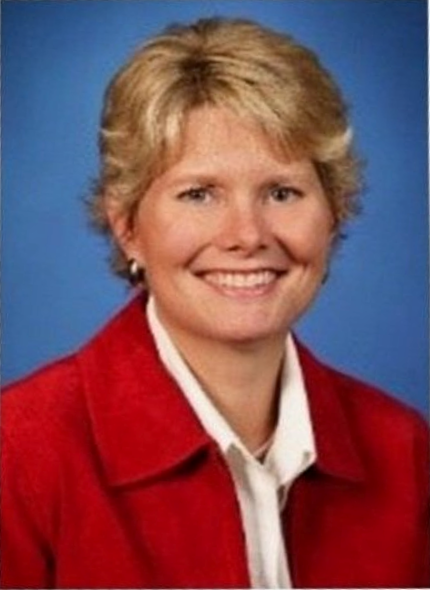
And it was a key takeaway for me because when he walked in my door that very first meeting, I had just come from a bad experience with Kent and was feeling all the things Kent wanted me to feel: inferior, unworthy, I was in the wrong place, all those things. And just like that, just by putting his lanky body in the chair and being real, like your guy, and welcoming me before I even knew where the coffee pot was, that’s the guy that would have brought me the cup of coffee. That made an impact on me. He taught me so much more about business and all those things afterwards, but what he taught me about being a person and being a leader didn’t come from any textbook and didn’t come from a stage. It came from a crappy old folding chair.
AA: That’s really beautiful. It strikes me also as we’re talking that both of us chose examples where men mentored us. And I just have to put it out there too, it’s usually with men who are older than me who are kind of struggling with how the world is changing, and we’ll have conversations about like, “I don’t really know how to be a good man anymore. Do women want me to be a hero? Is that patronizing? I don’t really know what to do.” And I always really appreciate when I think of or encounter examples where I’m like, that. That’s how you can be a really, I mean, if you want to call it heroic, or a really, really good guy, is just by listening to women, lifting up women, making sure the door to the rooms that you have access to are also open.
JB: That’s right.
AA: But it’s also so valuable to have women role models and women mentors. But I just thought it was interesting that for both of us the ones we thought of first were actually a guy who was willing to share and eager.
JB: And he did open doors for me and he did advocate for me and teach and correct me sometimes. Keep in mind, especially at senior levels, there weren’t other women to be role models. And sometimes women, I think as they get more senior, they have more demands. They have a lot of demands. And I do believe that sometimes women are reluctant to mentor because they themselves are struggling and don’t want people to see it. I had a rule. I created a rule about mentoring that if someone came to me and wanted to be mentored, I asked if they in turn would mentor five others. Which feels like a lot, but I was mentoring so many more than five that I felt five was reasonable, because I wanted to create scale. There aren’t enough women in executive or senior level or manager positions, so I wanted someone that I was mentoring to mentor five others to start creating scale. And if they were unwilling, but sometimes people would say, “I don’t have time to mentor.” To which I would respond, “If you’re not someone willing to help someone else out, I don’t want to invest my precious time helping you when I could be helping someone else who will help others.” And that was almost a litmus test because it both enabled that scale to exist to help others, but it also helped the person think, “Oh. Give, get. You’ve got to give to get.” Someone recently said, “Geez, Jane, don’t you think that’s kind of stuck up, or thinking a lot of yourself to ask someone to mentor five people to mentor with you?” I never thought of it that way because at the time I was mentoring a lot of people.
AA: Not stuck up, haha. No, it’s fantastic!
JB: And I also have to say to people, ask to be mentored. Ask someone. My advice to someone that says, “How do I get someone to mentor me?” Well, one, duh, you can just ask. But sometimes that doesn’t work. What I found works for me is that even when I have a full platter and I don’t truthfully have more bandwidth to mentor others, if someone asks to take me for coffee, I almost always say yes. Because you need a drink. Everybody needs to drink, everybody likes a cup of coffee. And I almost always say yes, just 15 minutes, 20 minutes. And that will either open a door, like your professor did, your conversation didn’t last long but it opened a door. And it will either open a door that you both mutually decide to walk through, or you’ll discern that that’s not the case and maybe you’ll take a nugget away and that’s like mentoring for a minute.
AA: Yeah, yeah. I love that. And, I mean, we can’t know beforehand which of those conversations are going to be transformative for the person. So I guess just being at peace that a percentage won’t, but a percentage will. And so you just say yes to as many as you have bandwidth for and can recognize that a lot of good will come of it.
JB: You know, so many people have been reaching out since I’ve written the book. And I feel kind of bad because they have stories and they’re like, “Oh my gosh, do you remember when you did this? It made such a difference,” and so on. And I think everyone that wrote a book would have the same response. Because what you may not even remember, that gentleman may not remember. Dudley probably has no memory of sitting at my desk, and what an impact he made. That’s the golden thread that weaves us all together, that makes it beautiful. That’s the tapestry we want to weave in our life.
AA: Yeah, I agree. Okay, a couple more questions. I want to know how your very down to earth, small town upbringing influences your leadership style and specifically your approach to business.
Dudley probably has no memory of sitting at my desk, and what an impact he made. That’s the golden thread that weaves us all together, that makes it beautiful.
JB: The short answer is: a lot. I have two thoughts on that. The first is that as I moved up the professional ranks, especially when I got to Microsoft, which had a very strong culture of kind of eating its young, I didn’t have a tech background and I didn’t really fit in. Literally at one meeting someone took my shoe off my foot and said, “Show me that.” And they looked at it and they passed it around the room because it was such a dorky brand. So I sought to be like them. I changed the way I dressed, I changed the brands, I changed the way I talk and all the things that had made me successful in me, I sought to change. And it was a friggin’ disaster. It was a disaster. I really did not get traction as I could or would have otherwise, I believe. That didn’t work.
At the same time, you take the best and leave the rest. Not everything I learned growing up was applicable. What was applicable, that I have made a part of my leadership style, is that there are three things that I look for when I hire someone. And I think many of those things were forged when I was a child: aptitude, ability, and attitude. Aptitude is, are you a round peg in a round hole or are you a round peg in a square hole? Because if you’re a round peg in a square hole, no amount of training is going to make you great at that job. You’re probably not even passionate about it because you just don’t fit. So you need to make sure aptitude’s correct. Ability is really, are you trained appropriately? Do you have the seasoning for it? Do you have the support you need? Are you being set up for success? That’s ability and training and so on. The third thing is attitude. And I learned working the cornfields of Iowa in some very difficult situations that if you have the right attitude, it’s worth its weight in gold. You will get the right aptitude and the right ability, but attitude is everything. And likewise, if you don’t have the right attitude in my team, in my leadership, you get one chance and you’re out. Because it’s a cancer and I cut deep, cut quickly, and you’re just gone. And in that regard, I am tough as nails.
So, I believe that there are no people that don’t have ability, don’t have aptitude at something. Nobody’s a throwaway. Everybody can contribute something if you find the right place for them. The other thing that I learned is that I am proud to be from Iowa. I am proud to be plain speaking, of the dirt, someone that can simplify complexity. I don’t value complexity, I value simplifying. It’s who and what I am, and I’m not going to change that. If that’s not okay, I appreciate that. If your yardstick measures something different from mine and you want me to change to your yardstick, it’s not going to happen. And if you don’t value my yardstick that’s probably not going to happen then either. So I would say that my background, where I grew up, is very much a part of what made me a leader. Also that there’s a solution for anything. I had to work my way up from nothing through selling used carpeting, selling prayers, and doing a lot of things. There’s always a way. And it seems to me that the biggest difference between those who do and do not is the word “yet”. If I haven’t done it, I just haven’t done it yet. If I haven’t figured it out, I just haven’t figured it out yet. If it’s important, I’ll figure it out. Someone will help me, I’ll get there. It’s just a yet. And that came from growing up in the Midwest.
AA: I love that. I love that attitude. I’ve tried to instill that in my kids, too. It’s so powerful and it changes everything. My two oldest kids have launched. My oldest graduated from college, my second is in college, and my third is about to graduate from high school. And so all of these life lessons are just so apropos and on my mind right now as they’re trying to navigate the adult world. And I just think this is so, so important. One other thing that I was going to ask you, Jane, is that you talk about your struggle with bulimia in the book, and I found that incredibly brave. And I was very, very grateful for it. So, so many people, and especially women, struggle with disordered eating and with, kind of how you referred to it earlier, not very healthy coping strategies when dealing with tremendous stress. I’m wondering if you could talk about that, specifically the bulimia, and why was that important for you to share?
JB: I went back and forth on that one because I was so ashamed. It was such a secret. My kids didn’t know, my husband, I mean, he knew. But it was not something I shared broadly. And I put it in there because I do think that whether it’s alcohol, bulimia, drugs, etc, people that are experiencing a lot of stress often go to a coping mechanism that isn’t healthy. In my case, it was bulimia, and it was a decades-long issue that I kept in the dark. Even for myself, I said in the book, in the stories about that. And boy oh boy, did I not want to put those stories in there. Whew. But that’s what I said when I said I turned myself inside out and showed my insides to the outside, because that was very real for me. And to say that I was being real in the book, in my stories, and not include that wasn’t honest. And it brought me to my knees and it was so formative, because I went to a 12-step program. That’s what was available to me. And I got to the place where my title was very good, my life on the outside was very good, but on the inside I was filled with unworthiness and FUD and all of these things and did not know what to do with them. And I did not know who I was. I was surrounded by people who provided for me unconditional love and a path forward. And it was interesting because I was in charge of this Scott Paper business, and the people that helped me out were people that worked in the Scott Paper, union employees, low level. And it didn’t matter. Again, level-agnostic.
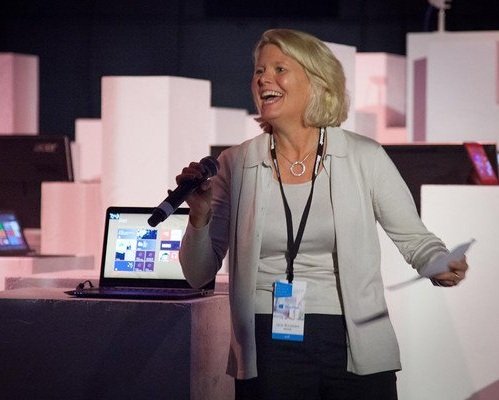
And I put that in there because there’s an expression that you’re only as sick or as healthy as the secrets you share. And I wanted to put myself out there because I do believe that a lot of women struggle with bulimia, struggle with disordered eating. I would ask them to please come out of the closet and to please seek help and to be honest about it because it is a bottomless pit that cannot be filled. It just can’t be. I was very graphic about my experience in that and that’s why. Not because I want to represent people with eating disorders around the world, but because I wanted to show that you don’t judge your insides by someone else’s outsides. You never know. It’s that humanity thing that we have to connect on, right? Man, woman, gender, whatever that is, it’s the common denominator of humanity. And if I wasn’t willing to put my own out there, I didn’t feel okay with that. And honestly, I’ve worked through it and I feel worthy. It is part of who I am and what I’ve become and it’s formative. And I wanted to share that.
AA: That’s incredibly courageous and so helpful. Again, like we’ve talked about already, it’s such a relief. You know what I mean? To read a book like this and just go, “Oh, phew, I’m not the only one who’s had this struggle or that struggle. The only one who behind the facade feels unworthy, I’m the only one who struggles in that way.” So it was incredibly brave of you and will be so helpful to people. So yeah, kudos to you.
JB: Thank you. I want women, I want everyone to realize they’re not the only one. I’ve been really surprised by the number of men that say they can relate to it because it turns out they have this facade they have to put up too. At least as women we have friends that we share at a very intimate level, I think, and a lot of men don’t have that. I wrote the book as a collection of 50 stories. It wasn’t my intent to write a book, it was my promised to others that I would write down my stories and they became this book. And in the process of doing that it provided healing for myself, and what I’m hearing is it’s providing healing, inspiration, encouragement for other people to rethink what they think is possible, which… yay.
AA: Yeah, that’s definitely my takeaway from the book. I really highly recommend it to listeners, to anybody watching. I’m wondering, as our time is now up–
JB: It is!
AA: It is such a delight to talk, but I’m wondering if there is maybe a final takeaway that you want people to take away from the book, or some final insight about personal empowerment that you want to say as we wrap up.
JB: I would say that you are worthy just as you are. It’s not something you have to earn, it’s not something you get with the title, or anything else. And overcoming the “un”s in your life is really important. No one can do that for you. Overcoming those limitations, those circumstances, those people, those voices, including your own voice that keeps you small, that tells you what you can’t, won’t, or shouldn’t do. You don’t have to have it all figured out before you take that step. You just need to take one step, one day at a time, and it adds up. And it was only in doing hard things I couldn’t imagine that I began to imagine myself differently. So don’t be afraid of being afraid and don’t be afraid of doing the hard things one day at a time that you can’t imagine, because you will imagine yourself differently. You will imagine yourself as that person you want to be.
AA: Thank you. Once again, this is Jane Boulware and her book is Worthy: From Cornfields to Corner Office of Microsoft. I just can’t thank you enough, Jane. This has been a delight and so inspiring. Thanks for being here today.
JB: Thank you for having me, Amy. It’s been a lot of fun talking with you.
the title doesn’t matter
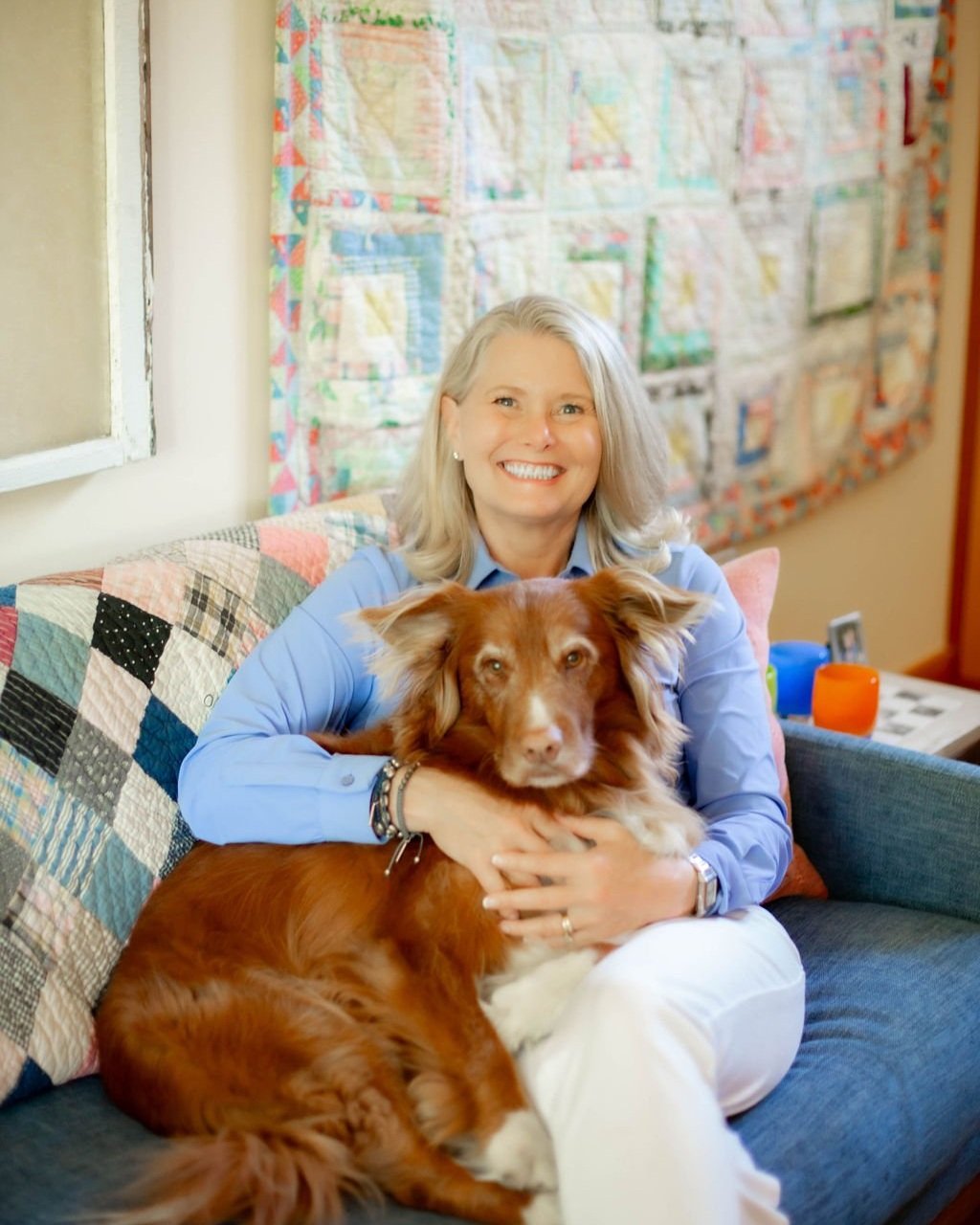
it’s what you contribute
Listen to the Episode
&
Share your Comments with us below!




